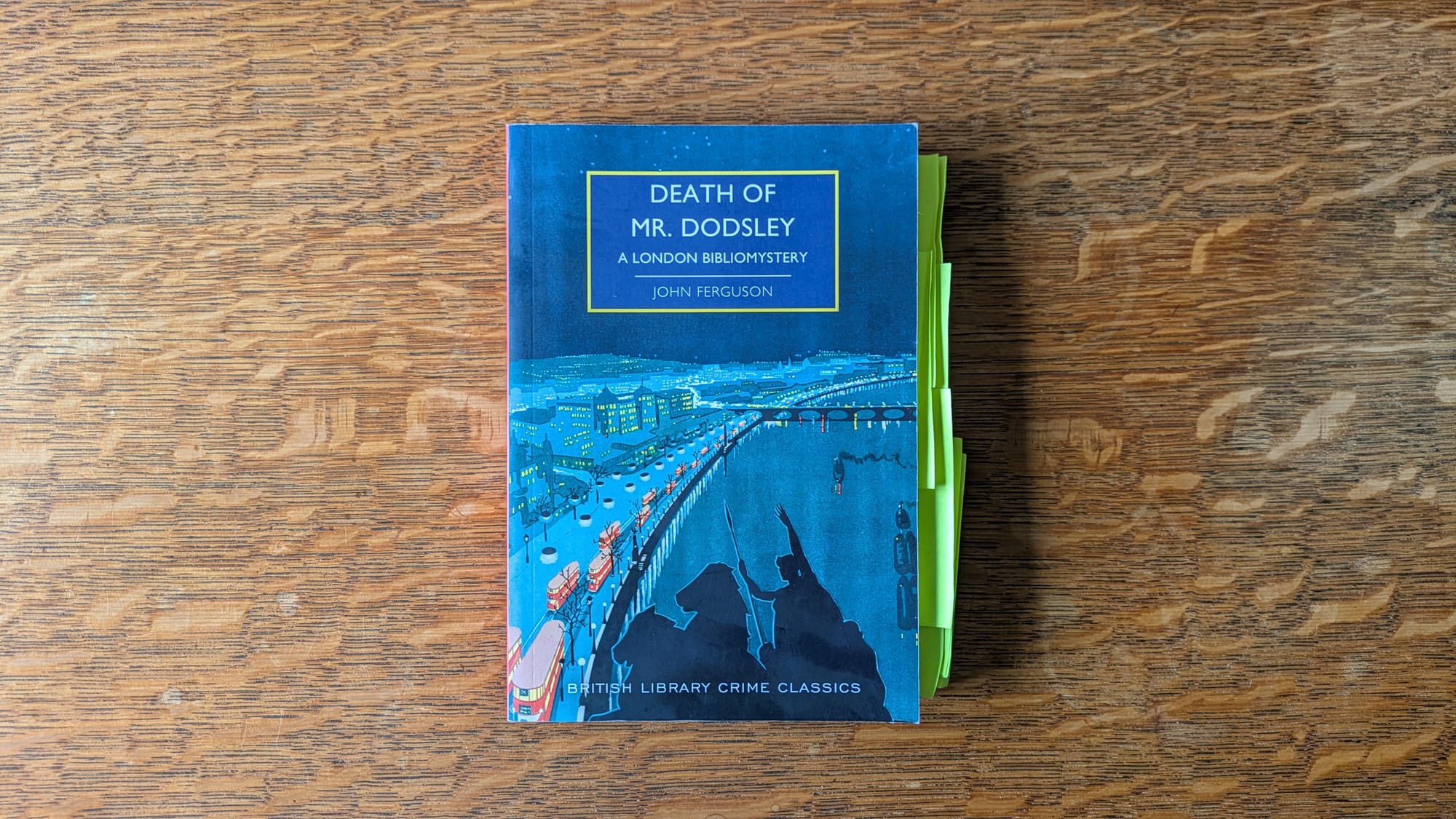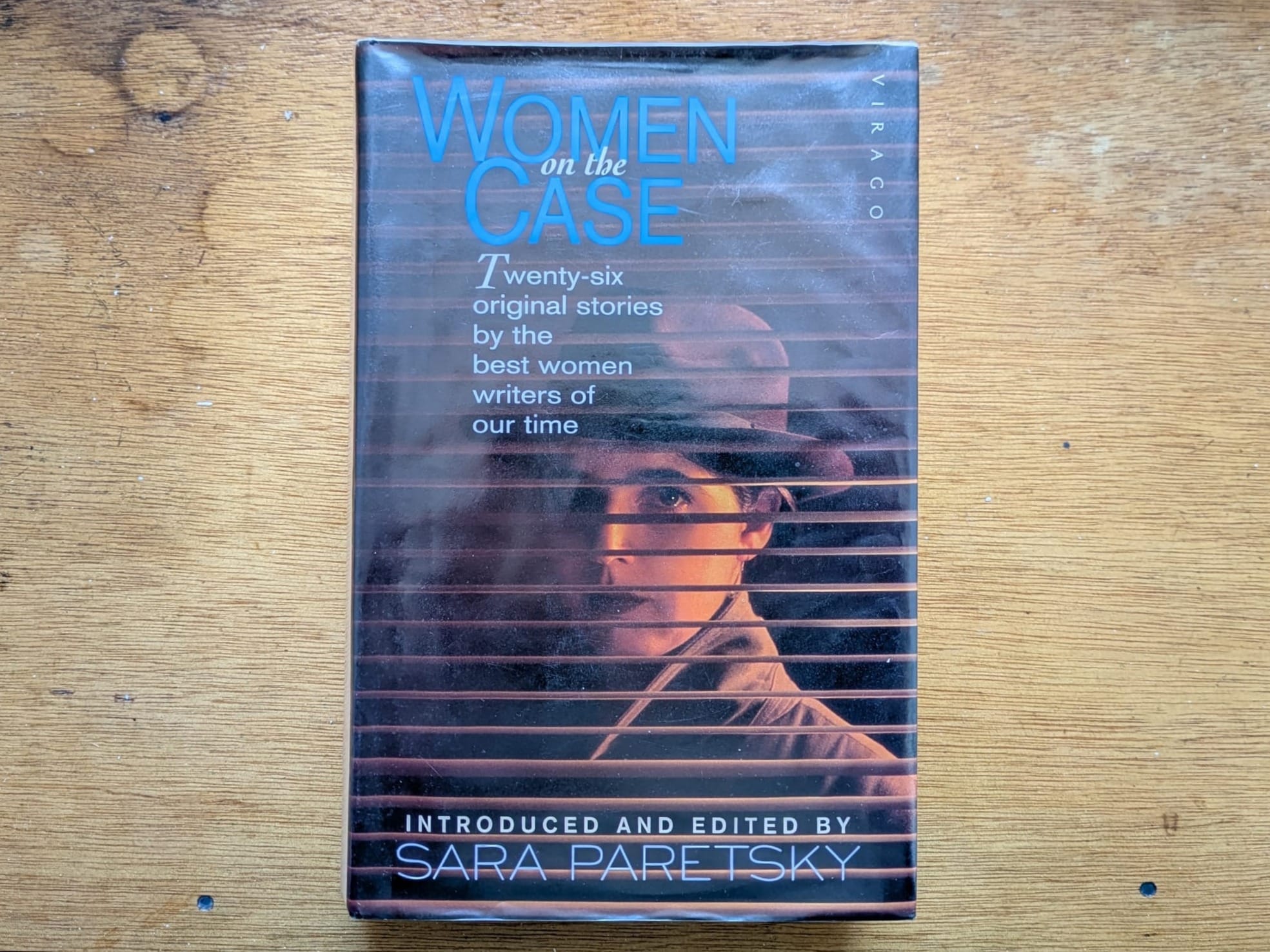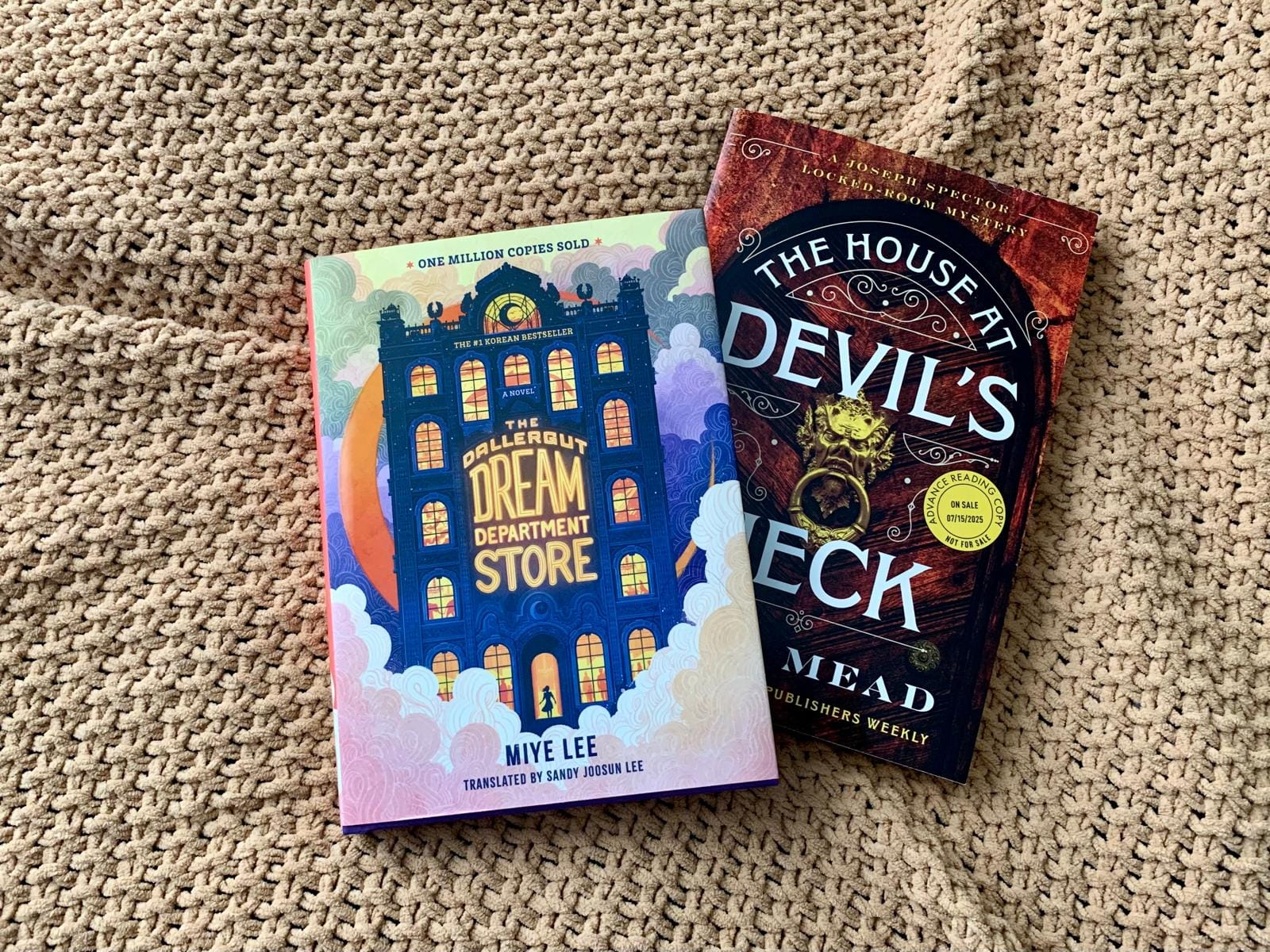We're All Going On A Summer Holiday
A trip into the Shedunnit archive.
Dear listeners,
We're approaching the middle of August, which where I am in the world is peak summer — the days are still long, the school holidays are still going, and the weather is warm. So for today's trip into the Shedunnit archives, I thought we would look at episodes that have explored how mystery writers use summer in their books.
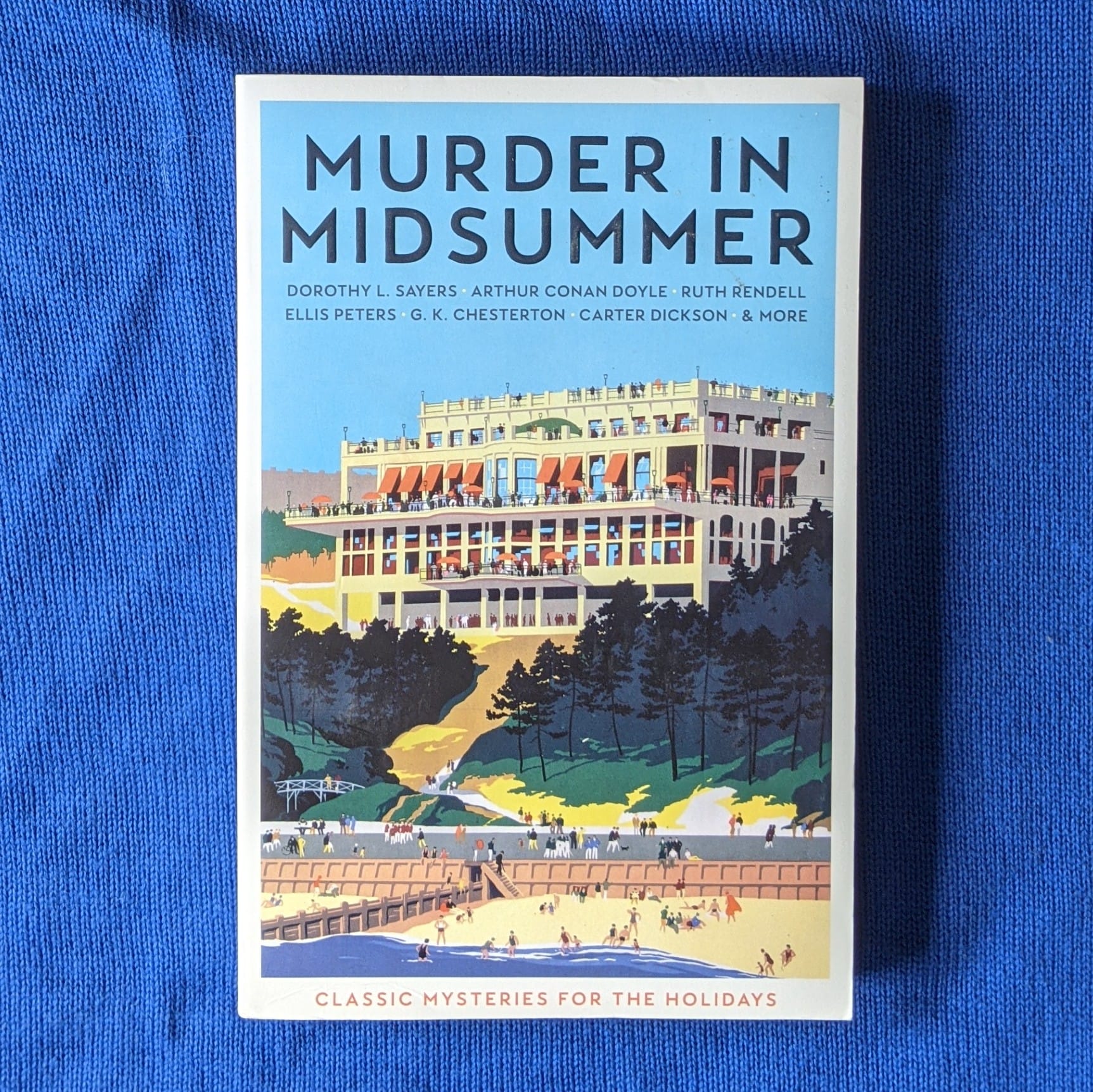
The "Murder in a Heatwave" episode from 2023 seems like a good place to start. Here's what guest Cecily Gayford had to say about the narrative potential of a rising temperature:
"I think there's a kind of narrative heightening that happens in heat waves. They intensify things and in literary novels that often is used as a device to bring the narrative to a fever pitch. But I think in crime fiction, it's often used as a way to suggest that someone's gonna really lose it. And that makes sense to us because everyone's had that experience of thinking, I'm so hot, something has to give. I cannot bear my family anymore. I cannot bear this tube carriage. I think the boiling over metaphor is a good one, right? You're kind of heating what might have otherwise been a stable situation until something dramatic happens. And then at the end there's going to be a thunderstorm and everything will be resolved."
It was also interesting to look back on the "Murder on Holiday" episode, in which I reflected on some of the reasons why summer holiday travel is a frequent inclusion in golden age murder mysteries:
"One theory about why detective fiction was so popular between the two world wars has to do with the general exhaustion and ennui caused by global events. I’ve talked about this on previous episodes — the idea put forward by the scholar Alison Light is that whodunnits are a kind of 'convalescent literature', ideal for reading while recovering from trauma. Since travel, often to a place with good air like a seaside or mountain resort, was a regular prescription by late nineteenth century doctors, it follows that mysteries set in these places would fit in well with this idea of crime fiction as a tool for recovery and escape.
One book that came up in that episode that I hadn't thought about in this context in a while is The Singing Sands by Josephine Tey:
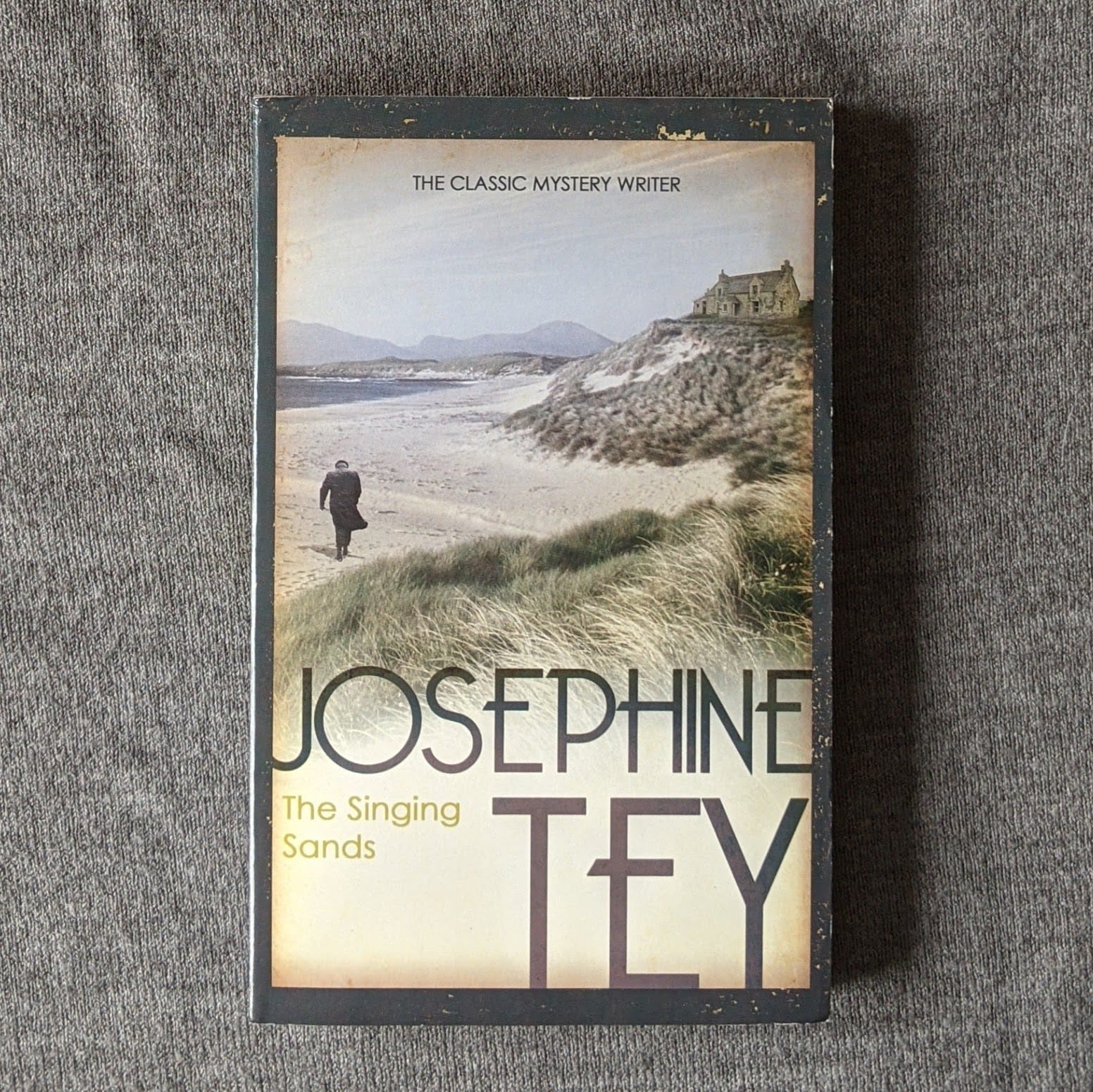
As I said in the episode, this book is a good example of the "convalescent" type of holiday mystery. In it, Tey's sleuth Inspector Alan Grant takes a sleeper train to Scotland to recuperate after a breakdown.
"Although it was published long after the actual golden age years — it came out in 1952 — Tey’s crime writing remained fairly steeped in the prevalent traditions of the 1920s and 30s. Grant is planning a relaxing break staying with friends and fishing, but when he gets off the train at his destination, one of the other passengers is found to be dead. Even then, Grant resists the temptation to jump straight back into work and continues with his plans, only to find that he’s picked up the dead man’s newspaper and there are some cryptic clues written on it. From that point on, the detective can’t leave the case alone, even though he’s not officially engaged on it. Tey’s novel is as much a meditation on the isolating effects of illness as it is a whodunnit, and Grant’s travels around the Highlands are key to unravelling both strands of the book."
Another common setting for a summer holiday mystery is the hotel. I've actually had cause to think about this particular trope quite a lot recently, because (only partly on purpose) the Shedunnit Book Club has ended up reading two books back to back that are set in hotels: The Feast by Margaret Kennedy last month and then The Cellars of the Majestic by Georges Simenon this month.
Here's what I had to say about hotel holiday mysteries back in 2023:
"Hotels and resorts are an excellent way of defining the limits of a story, meaning that a detective can get to know all the possible suspects in a social setting. Plenty of books work on this basis — Agatha Christie’s A Caribbean Mystery and At Bertram’s Hotel, for instance, or Dorothy L. Sayers’ Have His Carcase, in which Harriet Vane stays at the excellently named Hotel Resplendent in a small English seaside town after finding a body on the coast nearby. Death in Clairvoyance by Josephine Bell has a neat twist on this, with the murder taking place at a masked ball at a seaside hotel. Bell’s regular detective David Wintringham and his wife are on holiday and decide to attend the party, at which one of six identiacaly costumed clowns is killed. The ball essentially makes a circle within a closed circle, creating even more of a challenge for the sleuth."
Have His Carcase is a book that I don't instantly reach for when I want a summer holiday mystery, but I should — it certainly fits the bill.
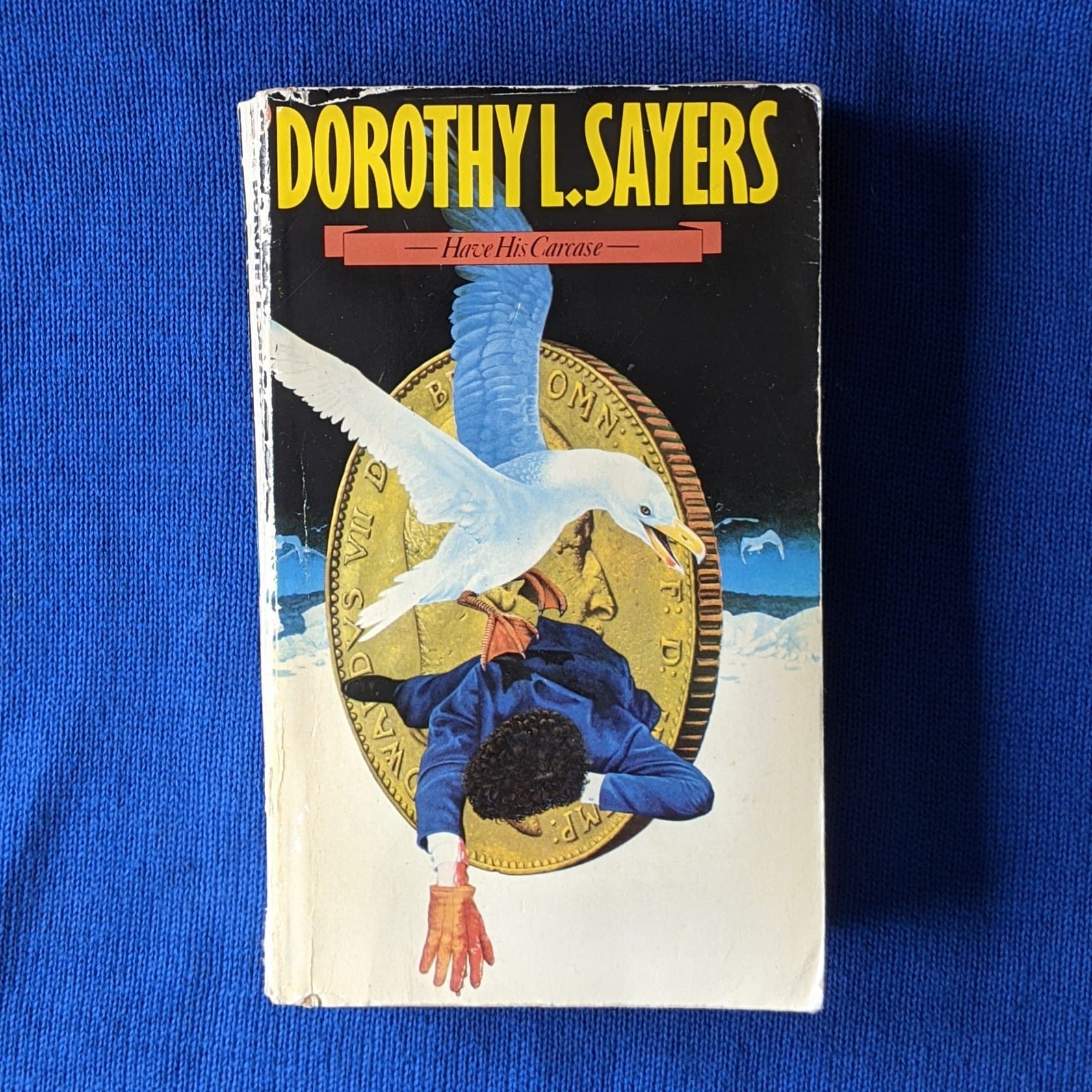
Although this cover doesn't exactly scream "glamorous seaside holiday", there are plenty of details about the hotel where Harriet Vane stays while working on this impossible beach crime case.
A few other episodes you might like to revisit to keep the summer cheer going a little longer: Cricket and Crime, Death Under Par, All at Sea and Death Sets Sail On The Nile.
Happy holidaying, happy summering, happy reading and happy listening to you all.
Until next time,
Caroline
You can listen to every episode of Shedunnit at shedunnitshow.com or on all major podcast apps. Selected episodes are available on BBC Sounds. There are also transcripts of all episodes on the website. The podcast is now newsletter-only — we're not updating social media — so if you'd like to spread the word about the show consider forwarding this email to a mystery-loving friend with the addition of a personal recommendation. Links to Blackwell’s are affiliate links, meaning that the podcast receives a small commission when you purchase a book there (the price remains the same for you).

